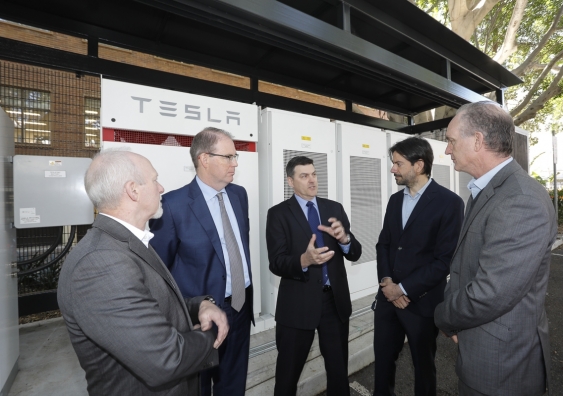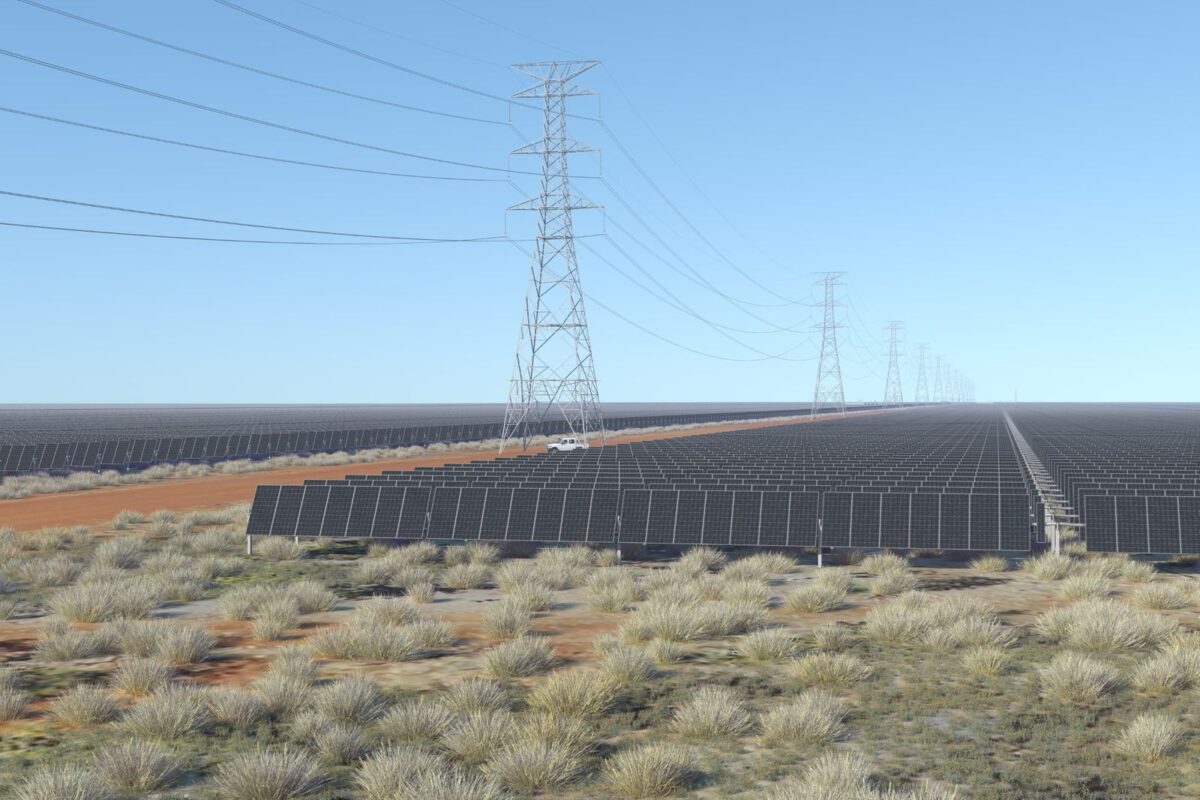The University of New South Wales (UNSW) Sydney has welcomed what it says is the first-ever industrial-scale Tesla Powerpack battery to be deployed on an Australian university campus.
The 500 kWh battery was installed by NSW transmission business TransGrid behind the UNSW’s Old Main Building, which features a 112 kW rooftop solar array.
In addition to offsetting energy use at the campus and reducing demand on the distribution grid during peak times and reduce power costs, the battery installation will be part of a ten-year energy study how to improve the utilization of energy storage for the university’s electricity grid.
“This partnership with TransGrid and Tesla gives UNSW a great opportunity for real-time study of how increasing levels of renewable energy generation in the electricity supply network can be managed by using distributed storage solutions,” UNSW Executive Director Estate Management Jeff Peers said.
UNSW researchers will investigate novel ways to utilise the battery, leveraging electricity load and weather forecasting tools, and creating new operational algorithms to perform control functions for smart grid applications.
The UNSW team will also use battery data to develop validated models that can be used to study the best ways of implementing battery applications for value stacking on the electricity grid, such as ways to improve the economics of distributed energy resources.
The trial will allow TransGrid to better understand grid impacts of storage solutions are installed across the Sydney metropolitan area.
Storage grows
TransGrid installed another 500 kWh Tesla Powerpack grid-scale storage system at the City of Sydney’s Alexandra Canal depot in June, where it was coupled with around 450 kWp of rooftop PV in a behind-the-meter energy storage trial.
According to TransGrid CEO Paul Italiano, batteries will play a significant role in the future of electricity network services, with energy consumers eager to see more innovative services that reduce costs.
“This trial with UNSW helps underpin the University’s efforts at achieving energy self-sufficiency, and also delivers benefits for the wider community through research knowledge gained and decreased peak demand on the electricity network,“ said TransGrid CEO Paul Italiano.
For TransGrid, the trial is aimed at reducing or deferring the need for new investment on its electricity network, ultimately reducing the cost of bills.
Overall, there is a number of Australian universities that have integrated or are looking to add battery storage to their solar arrays.
The University of Southern Queensland has installed a battery at its integrated solar car park, the University of Adelaide has a 2 MWh storage systems coupled with its 1.2 MW PV installation, while Monash University is currently developing a 4 MW solar PV + 1 MWh battery storage microgrid at its Clayton Campus in Melbourne.
UNSW Sydney has, however, even more ambitious plans to cover 100% of its electricity demands with solar on the back of a trailblazing offsite solar power purchase agreement inked with China’s Maoneng and electricity retailer Origin.
The tripartite agreement will see UNSW purchase up to 124,000 MWh of renewable energy per annum from Maoneng’s 200 MW Sunraysia Solar Farm near Balranald in south-western NSW, meeting UNSW’s annual energy requirements starting in 2019, while Origin will ensure electricity supply to the University if the solar output falls short.
This content is protected by copyright and may not be reused. If you want to cooperate with us and would like to reuse some of our content, please contact: editors@pv-magazine.com.









3 comments
By submitting this form you agree to pv magazine using your data for the purposes of publishing your comment.
Your personal data will only be disclosed or otherwise transmitted to third parties for the purposes of spam filtering or if this is necessary for technical maintenance of the website. Any other transfer to third parties will not take place unless this is justified on the basis of applicable data protection regulations or if pv magazine is legally obliged to do so.
You may revoke this consent at any time with effect for the future, in which case your personal data will be deleted immediately. Otherwise, your data will be deleted if pv magazine has processed your request or the purpose of data storage is fulfilled.
Further information on data privacy can be found in our Data Protection Policy.